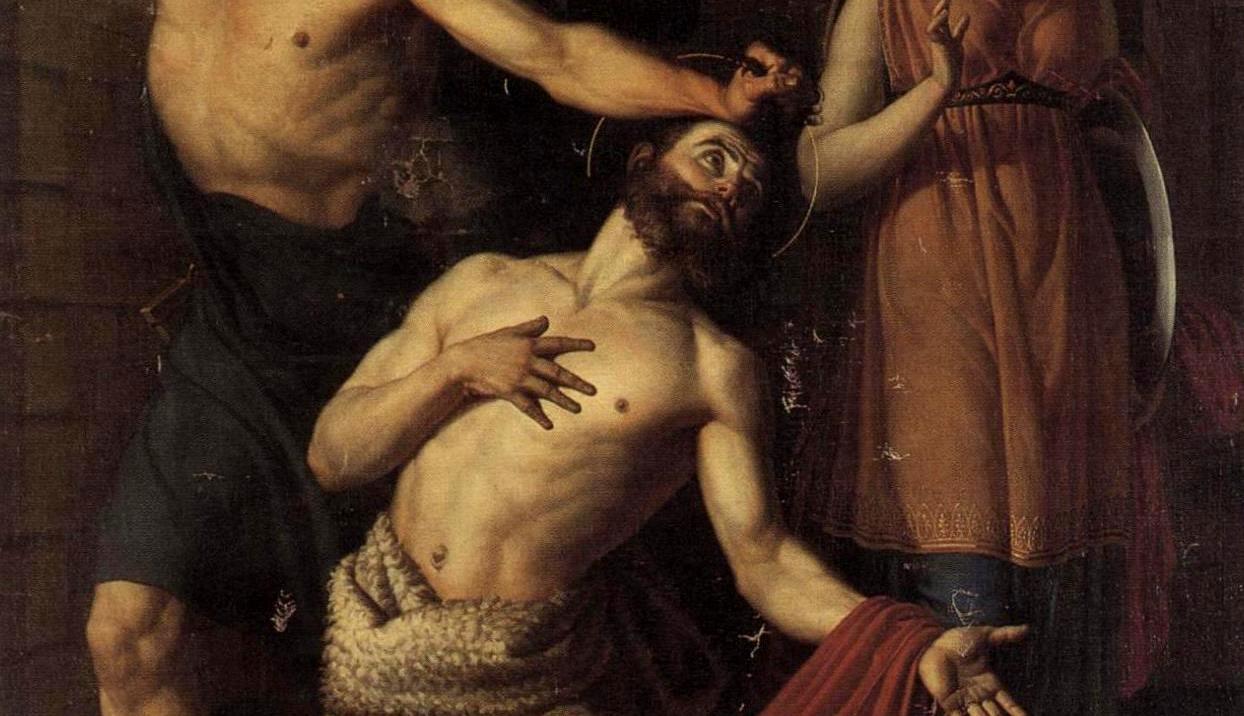The Terrorists
Tears feed the sweeping sands beneath their feet,
And blood runs deep into the living ground.
The sun throbs down with agonizing heat.
The captives kneel, blindfolded, with no sound:
Only the jitter of the distant bug,
The hum of desert winds above the trees,
The spikes of hot adrenaline that tug
Unto the heart until it sinks with ease,
The glitter of the steel-harsh blade, the gleam
Found in the executioner’s cold eye,
All passing in the likeness of a dream,
That withers into dust when one must die.
The jitter shakes and rattles through the air.
The sands thrash, offering their final plea,
But no one hears, the blade swipes down, and their
Blood feeds the sands they’ve tried so hard to free.
The executioners, without a glance
Of pity, leave the carcasses to rot.
The world lies silent, trapped as in a trance,
A trance of dark and never-ending thought.
Dull throbs the dusty sky, dull throbs the day,
While death’s wan film sets on each hero’s face.
Their images begin to fade away,
While terrorists fill up that gaping space.
They once were children, once had mothers who
Would lose their eyes for them if they were blind
Would give away their ears and noses to
Ensure that their beloved children find
The straightest road to their most fervent dreams.
They once were children who, with purest eyes,
Gazed on the world, yearned for its deep extremes,
And lingered always on the distant skies.
Once children, but how rough the world may turn,
How savage shift the grainy sands of Time,
How, with such speed, all former memories burn
And childish love turn into scornful crime,
Toys sharpened into blades that pierce and jab,
And mothers’ gentle kisses and good nights
Hardened to swords to kill, behead and stab
And torture people right before our sights.
Our bleeding, mangled heroes lie upon
The sands, blood dripping through the scorching ground,
And by their sides, tall shadows in the sun
Like wretched phantoms wait without a sound,
Cold husks of their once former selves, mere slaves
That topple truer men of truer grit,
Once filling hearts with love, now filling graves,
Alive on Earth, but slowly killing it.
To John Keats
Fair poet whose soft tones the oceans bless.
Whose songs fill echoes of the summer’s clime,
Unearthly sounds that take delight to chime
With melodies of unheard loveliness.
As breezes sweep the rose’s pearly tress
Or breathe their fruitful songs in autumn’s prime
As nightingales sing sweet, so is your rhyme
That with fair nature stands of power no less.
Could I some morn dwell by a sturdy oak
To lean against her roots and smell the grass
With your smooth verse’s power there to evoke
A sundry beauty in my psyche’s glass,
Of poetry that for long ages spoke
And speaks ‘til time to nothingness must pass.
Gleb Zavlanov is a high school senior who occupies himself with literature, language and music. His poetry has appeared in The Phoenix, the literary magazine of the prestigious Townsend Harris High School in Flushing, New York.















Powerful poems, each so different from the other, but each painting such a vivid picture. I like your use of enjambment in the first poem, and I like the spondaic quality of the line, “Dull throbs the dusty sky, dull throbs the day.” Coming in the middle of the iambic pentameter, it slowed my reading down with its heavy footfall, much like a funeral dirge. Very effective. Keep up the excellent writing, Gleb!
Thank you for the comment. I’m glad you found it powerful.
These are both excellent poems and written with a maturity I wouldn’t expect in a high school student. They both have strong rhymes and use of enjambment. The first describes the tragedies and atrocities of war and terror so very well. Great imagery evokes the reader’s emotions. The imagery in the second poem is beautiful and a stark contrast to that of the first one. Keep on writing. You have talent.
Thank you for the compliment. I’m glad you enjoyed it.
I was also surprised to see that the poet here is a high school student, not only because of the poetic skill, but also the depth of the sentiment expressed. Well done!
Thank you so much for reading and commenting.